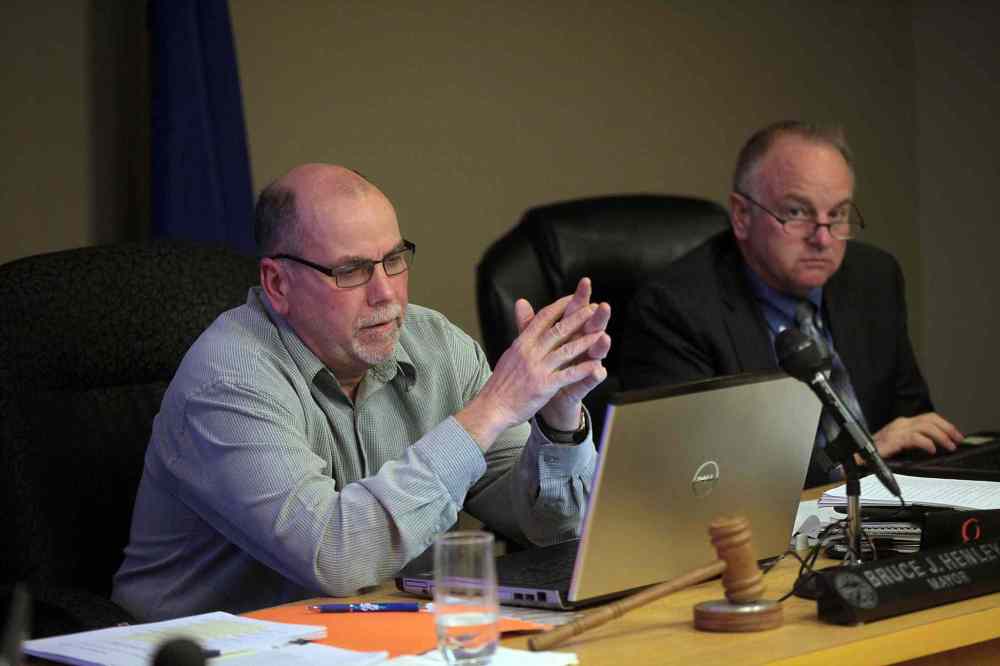Municipal conflict laws too soft
Advertisement
Read this article for free:
or
Already have an account? Log in here »
To continue reading, please subscribe:
Monthly Digital Subscription
$1 per week for 24 weeks*
- Enjoy unlimited reading on winnipegfreepress.com
- Read the E-Edition, our digital replica newspaper
- Access News Break, our award-winning app
- Play interactive puzzles
*Billed as $4.00 plus GST every four weeks. After 24 weeks, price increases to the regular rate of $19.00 plus GST every four weeks. Offer available to new and qualified returning subscribers only. Cancel any time.
Monthly Digital Subscription
$4.75/week*
- Enjoy unlimited reading on winnipegfreepress.com
- Read the E-Edition, our digital replica newspaper
- Access News Break, our award-winning app
- Play interactive puzzles
*Billed as $19 plus GST every four weeks. Cancel any time.
To continue reading, please subscribe:
Add Winnipeg Free Press access to your Brandon Sun subscription for only
$1 for the first 4 weeks*
*$1 will be added to your next bill. After your 4 weeks access is complete your rate will increase by $0.00 a X percent off the regular rate.
Read unlimited articles for free today:
or
Already have an account? Log in here »
Hey there, time traveller!
This article was published 12/12/2015 (3585 days ago), so information in it may no longer be current.
On Thursday, the Manitoba ombudsman reported on the latest conflict-of-interest controversy in Canadian civic government. There’s good news and bad news in its review of a botched construction deal in the RM of West St. Paul on the north edge of Winnipeg. Canadians who care about civic accountability should be careful to learn from both.
To recap: Manitoba ombudsman investigation No. 2013-0391 describes a complete circus, even by the standards of other local fire hall scandals. The report concluded a West St. Paul councillor’s brother was allowed to serve as a “volunteer consultant” to help draft bid specs for the hall’s construction. The brother’s company then won some of the work at tender. The councillor himself worked for that same company. The report offers no further information on whether a violent attack in 2013 by masked men on a critic of the bid process was related to this mess.
The good news: the investigation set a useful precedent. Anyone familiar with recent cases knows Canadian municipal conflict-of-interest law is a soft and fluffy cupcake. Even if municipal conflict laws in a particular province apply to an alleged conflict (which they rarely do), there’s still a titanic problem with enforcement. One-hundred per cent of enforcement responsibility falls on ordinary citizens, who must investigate complaints and fund any court challenges themselves.

The penalties are equally fluffy, since they’re mostly geared toward penalizing officeholders. Even if the former councillor was found guilty of an offence in a court of law tomorrow, it wouldn’t matter much. He was already decisively defeated as a mayoral candidate in the 2014 election. Incidentally, the man who won — West St. Paul Mayor Bruce Henley — was the victim of the aforementioned attack.
So, the useful precedent is the ombudsman showed Canadians what can turn up when trained investigators and public resources are used to shine a light on an otherwise murky ethics complaint. How many other conflict situations in recent history would have become cut-and-dry cases if investigations had been routine?
But here’s the bad news: look at how much time it took to complete the review on events from 2010 to 2014. And, look at the outcome: the best the ombudsman can do is offer suggestions to prevent future conflicts. Some of them — such as providing ethics training for councillors before they take office — make perfect sense. But they’re just recommendations.
Conflict complaints are a top source of ethical anxiety in Canadian city politics. In the last five years alone, at least three big-city mayors faced — and then beat — conflict allegations based on grey areas, missing facts or technicalities, and many more councillors faced similar complaints with fewer headlines.
(Full disclosure, as an adviser to then-Winnipeg mayor Sam Katz from 2004 to 2008, I helped him comply with conflict laws on entertainment-tax decisions. In 2012, I publicly sounded the alarm about his potential conflict over the Parcel 4 issue before he ultimately pulled himself out of that debate.)
For the sake of both accusers and the accused in these cases, here’s what I wish the ombudsman had recommended: it’s time for amendments to the Criminal Code, superseding provincial laws that treat potential conflicts as if they are insignificant.
Consider the Americans, who don’t share Canada’s naØveté on this issue. In 2009, a California city councillor was arrested at his city hall and taken into custody. He was charged with a felony conflict of interest for repeatedly voting to buy a total of US$18,000 in ads in a community newspaper owned by his wife. To avoid a prison term of up to three years, he resigned and pleaded guilty to a misdemeanour, two years of probation and US$18,000 in restitution. By law, he was prohibited from holding public office in California.
Examples such as this are common because the Americans treat municipal conflict complaints as corruption cases. They’re usually investigated by state troopers or the FBI, with the power to demand records, interview witnesses and confirm expeditiously whether complaints are fair — which is better for both the politicians and their accusers. There are exceptions: New York City enforces its conflict rules through a board, but that board also has veteran investigators on the payroll.
You have to believe Canadian politicians would work harder to avoid even the perception of conflict if the pertinent laws were actually under police jurisdiction. But for now, the only deterrent is someone might complain to a toothless ethics official — or maybe file an awkward lawsuit at his or her own expense.
Brian Kelcey is a consultant in urban politics and policy.
History
Updated on Saturday, December 12, 2015 6:21 AM CST: Adds picture


